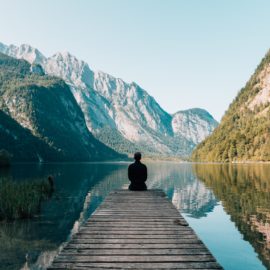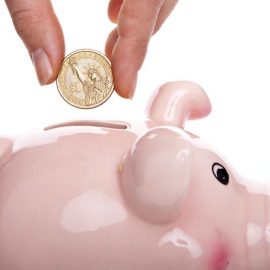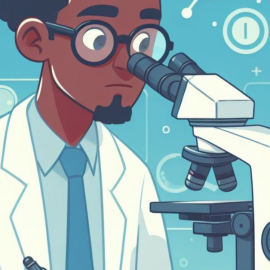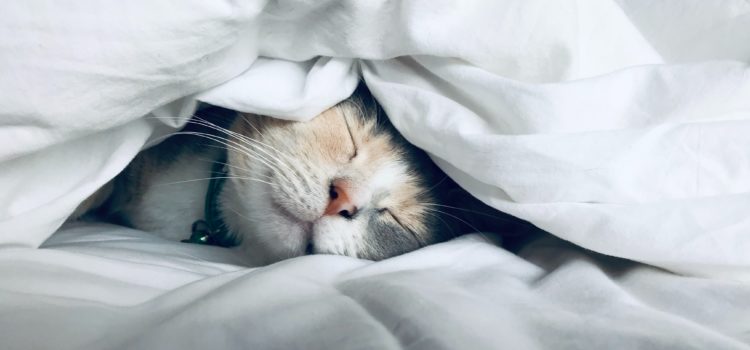
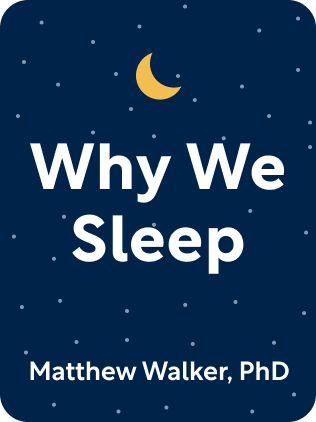
This article is an excerpt from the Shortform summary of "Why We Sleep" by Matthew Walker. Shortform has the world's best summaries of books you should be reading.
Like this article? Sign up for a free trial here .
Do you have trouble sleeping, or wish you could get a better night’s sleep? Are you looking for ways to improve sleep?
There are several ways to improve sleep, depending on what area of sleep you struggle with. Things like establishing a bedtime routine and cutting out caffeine can help you find ways to improve sleep. Read more below on the natural ways to sleep better and more.
Ways to Improve Sleep
In addition to avoiding all the well-known sleep deterrents (eg caffeine, alarms), here are more ways to get better sleep:
- Keep the same waking and sleeping time each day. Erratic sleep schedules disrupt sleep quality.
- Practice sleep hygiene – lower bedroom temperature, reduce noise, reduce light.
- No alcohol, caffeine, exercise, or long naps before sleep.
- Exercise seems to increase total sleep time and increase quality of sleep.
- This is more a chronic effect. This does not seem to act immediately on a day-to-day scale – exercise on one day doesn’t necessarily lead to better sleep that night. But worse sleep on one night does lead to worse exercise the following day.
- Eat a normal diet (not severe caloric restriction of below 800 calories per day). Avoid very high carb diets (>70% of calories) since this decreases NREM and increases awakenings.
Finding ways to get better sleep can be challenging, but you can work on finding the best methods for you, and avoid common problems.
Sleeping Pills are Bad
One of the common ways to improve sleep is to try sleeping pills, though this may be the best plan. Sleeping pills are typically sedatives that put the body into a state that doesn’t fully resemble sleep (similar to alcohol). The sleep looks different electrophysiologically — the deepest brainwaves are lacking.
Sleeping pills may not even be one of the good ways to get better sleep. They don’t even really work. Sleeping pills are no better than placebo at time to fall asleep(even though self-reported satisfaction is higher). The lower quality of sleep causes daytime sleepiness.
Sleeping pills can kick off a heavily medicated vicious cycle:
- Poor sleep practices or stress reduces sleep.
- Taking sleeping pills cause next day drowsiness.
- Caffeine use and naps reduce drowsiness, but also reduce ability to sleep at night, causing more sleeping pill usage.
- Tolerance of sleeping pills causes withdrawal insomnia when stopped, thus maintaining the habit.
Population studies show that sleeping pills increase mortality in a dose-dependent way. Suggestive causes, possibly with a root cause of abnormal sleep:
- Increased drowsiness in day increase car accidents
- Increased risk of cancer
- Increased infection risk (esp bad for elderly)
- (Shortform note: we can’t rule out that something upstream that disrupts sleeping and thus make people take sleeping pills is also causing all these other disease risks.)
CBT for Insomnia
One of the possible ways to improve sleep is CBT. Cognitive behavioral therapy (CBT) is a common non-pharmacological method for changing behavior. It’s commonly applied to depression, but there are variants for insomnia.
CBT has been shown to be more effective than sleeping pills.
A big part of alleviating insomnia and finding ways to get better sleep is redeveloping confidence around ability to sleep. Thus, some practices force insomniacs to restrict their time in bed, maybe even to 6 hours or less. This builds up stronger sleep pressure, and so patients fall asleep faster and regain psychological confidence.
Other prescriptions:
- Don’t have a clock nearby or you’ll watch the clock and be anxious that you’re not falling asleep.
- If unable to sleep, get out of bed and go back when sleepy. Don’t lie in bed awake
- Go to bed only when you’re sleepy.
- Avoid daytime napping.
- Reduce anxiety-provoking thoughts before bed.
Ways to Improve Sleep
People all over the world seek out natural ways to sleep better. We’ve seen chronic sleep deprivation caused by a variety of factors, from the individual scaling up to the societal. Here are some ways to improve sleep no matter the cause of bad sleep:
- Individual
- Automated “internet of things” household that can automatically sense your circadian rhythm and personalize the temperature and lighting to maximize sleep.
- Furthermore, if you have an upcoming disruption to your sleep schedule (like a flight), it can adjust your circadian rhythm to smoothen the transition.
- Sophisticated body trackers that record a host of factors — sleep, physical activity, light exposure, temperature, heart rate, mood, happiness, social performance, productivity — and shows how your sleep correlates with better performance on all dimensions
- Patients given tools to show their compliance with a program (like blood pressure monitors, scales) increase compliance rates. More data on sleep would improve sleep quality.
- Can also predict when it’s best to get a flu shot (since sleep affects responsiveness to vaccine)
- Cars that sense sleepy driving through facial recognition and driving behavior. The car can shut down in dangerous situations. Drivers with good sleep habits may get lower insurance rates.
- Automated “internet of things” household that can automatically sense your circadian rhythm and personalize the temperature and lighting to maximize sleep.
- Educational
- Have sleep be a mandatory subject in physical education (like drugs and diet)
- Have predictive tools that show the costs to health and income if you continue your poor sleep habits
- Instruct the populace on sleepy driving as much as drunk driving
- Organizational
- Companies should be more flexible about work hours, allow naps, and de-emphasize hours worked in favor of real productivity.
- Employers and insurance companies can incentivize sleep. For example, for a certain number of days of over 7 hours of sleep (as tracked by a sleep monitor), get extra vacation days, more pay, or reductions in health insurance premiums.
- Hospitals should promote sleep hygiene for patients, especially in the ICU and NICU. Change the harsh white lighting, dispense earplugs and eye masks, reduce alarms and beeps, and schedule lab tests to align better with sleep schedule.
- Better sleep is shown to reduce sensitivity to pain, and increase weight gain and O2 sat levels in neonates.
Natural ways to sleep better and improve your sleep:
- Set a sleep schedule: sleep and wake up at the same times every day. Don’t sleep procrastinate, and don’t think that you can just sleep in on weekends (it makes it harder to wake up Monday morning)
- Don’t use alarms if you can help it. Alarms cause a huge stress reaction on waking. And snoozing causes repeated stress traumas every morning.
- Wake up with the sun or use very bright lights. This sets your circadian rhythm.
- Avoid all caffeine and nicotine if possible. But if you have to have caffeine, avoid it in the afternoon, since it takes over 10 hours to wear off fully.
- Exercise regularly, but not within 3 hours of sleep.
- Don’t nap after 3PM – they make it harder to sleep at night.
- Don’t drink alcohol unless it is completely metabolized by sleep time (including the aldehydes produced).
- Avoid large meals and drinks late at night. Large meals can cause indigestion; too many fluids cause frequent urinations.
- Reduce light before sleep. Blue light is the most harmful, but even bedside lamps cause issues. Artificial light delays the circadian rhythm by hours.
- Cool body temperature before sleep. The ideal sleeping temperature is 65F given standard bedding and clothes. Other tricks – expose your palms and feet while sleeping, take a hot bath before sleeping.
- Don’t rely on sleeping pills – these are usually just sedatives that put you more in a sedation state than sleep. Also, avoid medications that disrupt sleep.
- Don’t lie in bed trying to fall asleep for more than 20 minutes. Get up and do something until you feel sleepy. Anxiety will make it harder to fall asleep.
As you learn about ways to improve sleep, pay attention to your current sleep patterns and routines. You can find ways to improve sleep by following the checklist and working on relaxation strategies.

———End of Preview———
Like what you just read? Read the rest of the world's best summary of Matthew Walker's "Why We Sleep" at Shortform .
Here's what you'll find in our full Why We Sleep summary :
- Why you need way more sleep than you're currently getting
- How your brain rejuvenates itself during sleep, and why nothing can substitute for sleep
- The 11-item checklist to get more restful sleep today

